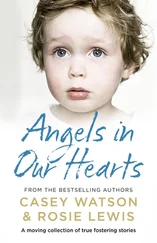I focus on the rare torrent of rain outside to avoid nostalgia for something that never existed. Dusty red and spare, this unfamiliar landscape is what the moment just before the end of the world will look like. I slept most of the way on the bus ride that lasted days or minutes from my home in the middle of the country, waking up in time to see the pastel stucco houses of the Southwest hunkered down close to the ground, futilely ducking the rays of the big red sun. Saguaros loomed on the side of the road, giant and slightly awkward in their hugeness like freak show tall men. Walking from the bus station to the shelter’s confidential location (known only to the people in the apartment complex across the street, the clerks at the Circle K on the corner, and all the bikers who frequent the biker bar down the block and then ride out into the world at large), I passed date palms and aloe vera plants growing impossibly out of dry earth. Outside a faded yellow one-story house lay a rusty car, flipped over and filled with dirt, flowers growing out of its smashed windows.
Which leads me back to Jonathan, so I consider swamp coolers, the strange contraptions specific to this dry climate, their wet cloth pads hanging down so the thin breeze can blow through. What do swamp coolers have to do with swamps? There’s nothing swampish about this place.
Like most of the women, I am not from here, though being white I am more from here than the Indian women from reservations, which hover dilapidated and desolate at the edges of the city like guests never invited in, or the Mexican women from the other side of the border. We are all strangers to this place run by helpful white women who provide us with clean sheets and towels and help us to locate ourselves in the slivers of the Power and Control pie chart — economic abuse, sexual abuse, verbal abuse, pushing, hitting, scratching, hair-pulling, knifing and/or other weapon-related violence. The counselors’ conversational Spanish is no match for the clicking rhythms spoken by my neighbor Joan, the Tohono O’odham woman who lives in the room next to mine with her ten-year-old daughter whose head is dented from the time her father threw her down the stairs when she was two. The counselors go home at night, except the one who sleeps over, who is especially proud of her ability to pronounce the ah-ah-DOM in Tohono O’odham.
I pick a number from the C s with my eyes closed and dial carefully. It rings only once. “Why don’t you just fuck off?” a crying girl answers midsob. She was expecting someone else, and I apologize. “Who is this?” she asks hopefully. I hang up because I don’t want to disappoint her.
“He hung up on you,” Mary says, an accusation. She’s sure I’m calling Jonathan. She doesn’t really care whether I call him or not — she just wants to know everything. I don’t even bother denying it because it isn’t worth squashing the pleasure Mary takes in thinking that she’s right. She lies back, taking up the whole couch where she’s been cutting her toenails all evening, the ragged half-moon parings falling onto the thin brown carpet that doesn’t reach the edges of the room.
“I’m going to have to vacuum that tomorrow, you know,” I remind her. My name is next to Lounge Duty on the chart in the office.
“Fuck chores,” she says. “I had enough of that at home. It’s like being abused all over again around here.” She likes to talk tough to remind us that she comes from tough-talking, working-class New England stock, raised in a town famous for being the home of a woman who murdered her parents with an ax for no apparent reason. She’s also in a particularly bad mood because she got into a fight with her counselor this afternoon. The counselor said she saw her hanging out at the biker bar up the street where Mary’s new boyfriend spends most nights drinking and playing pool and waiting for Mary. She’s spent all afternoon painting and repainting her nails. Now she twists open a bottle of nail polish called Wicked, procured from the makeup closet. The smell is harsh and medicinal.
I reach in the pocket of too-big borrowed pants, all they had in the lounge closet, and discover a quarter. I dig it out and hold it in my hand, remembering the way — before he forbade me to leave the house without him two weeks ago — Jonathan slipped quarters still hot from his clenched hand into mine as if I were a slot machine that might someday give. He liked me to call him from wherever I was going once I’d arrived. Once, he had me put the guy at the gas station on the phone. “She’s right here,” he told my husband cheerfully and then nodded, laughing. “Sure will. My wife forgets to change the oil, I can’t tell you how many times.” When he hung up, he smiled at me. “Women,” he said, shaking his head.
After Jonathan asked me to quit my job, he called from work on the half hour to make sure I didn’t leave the house. The first thing I did when I got to the shelter a week ago was to see how it felt to be on his end of the line. He picked up the phone and said, “Eliza,” in a sad echo of a voice that made me want to get back on the bus and go home to him. He sometimes looked at me so hard it was as if I were the only thing in the world that he wanted. If he’d stared me into dust, I would have been grateful.
I dial his number, my old number, and the phone just rings and rings. My heart races — whenever he’s not there, I’m sure he’s killed himself, but as the counselors around here like to say, I’m projecting. Whenever he is home, I listen to him breathe for a while and then hang up.
“So is someone going to do something about this tree?” Mary asks, waving her knife. Impatience is Mary’s natural tone of voice. In the corner of the lounge, the trashbag filled with ornaments wrapped in paper towels sits next to the artificial tree, which still doesn’t have its top put on. The ornaments are mostly glass Christmas balls, green and red, with a few handmade ornaments like the round, smooth, cross-cut piece of wood with MERRY CHRISTMAS MOM, LOVE, PETE ’99 painted in alternating blue and purple letters. None of us know who Pete is, and no one hazards a guess because it is an unspoken rule that the immediacy of life here does not allow for questions that travel backward.
Lindy walks into the lounge like the ringmaster at a circus, capturing our attention with the possibilities of what she might do next. Last night she showed us how to shake quarters out of the soda machine, rocking it with hands braced on either side of its frame as if she were reprimanding it. She throws a shrink-wrapped cupcake at Mary and a bag of chips at me.
“Hey, watch the nails,” Mary says, brushing the cupcake off the couch as if it were an insect.
“What?” I ask. “No dip?”
“What are you going to do about the tree?” Lindy asks, looking at Mary. Mary’s voice has a tendency to carry throughout the shelter, but even if it didn’t, Lindy hears everything. It’s a sense she fine-tuned over the years with her on-again, off-again cop boyfriend who works for the border patrol in Nogales.
“Yeah, right,” Mary says. “Merry fucking Christmas.”
“What happened with the police this afternoon?” I ask Lindy. Lindy was caught shoplifting earlier today — a container of dental floss she could have gotten from the shelter.
“Wouldn’t you know I’d get caught stealing something useful,” Lindy says. “He said he’d go easy on me because my life was such a mess. I think he was just disappointed to find out I’m legal. I know my boyfriend was.” Lindy’s half Mexican, and her boyfriend liked to threaten her with deporting her mother, originally from Hermosillo and now living in California. Lindy’s father, who abandoned the family when Lindy was born, is white, born and raised in Iowa, like my parents. My own parents are both dead of natural causes, having lived substantial lives. Their deaths were shocking and shockingly unremarkable.
Читать дальше












